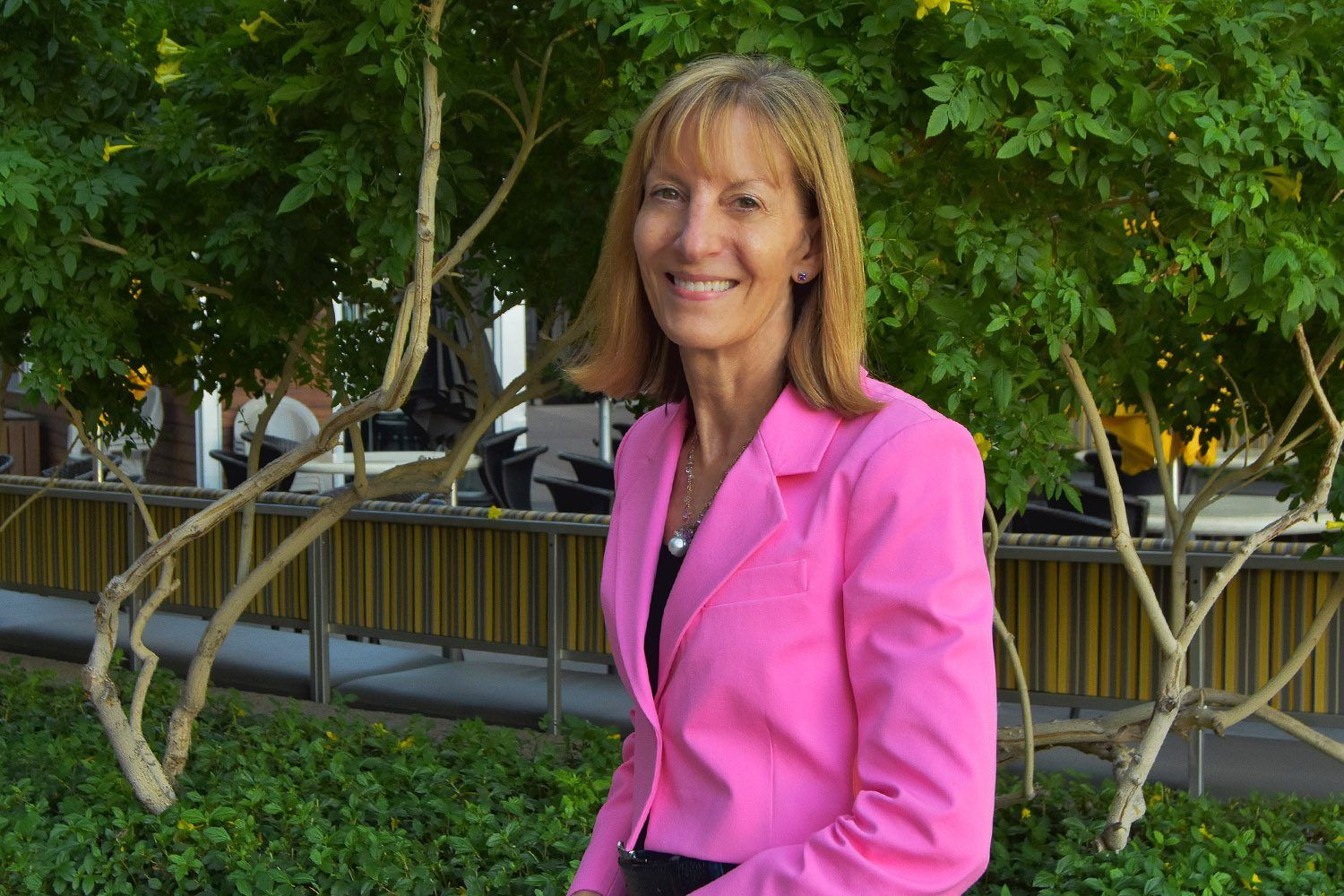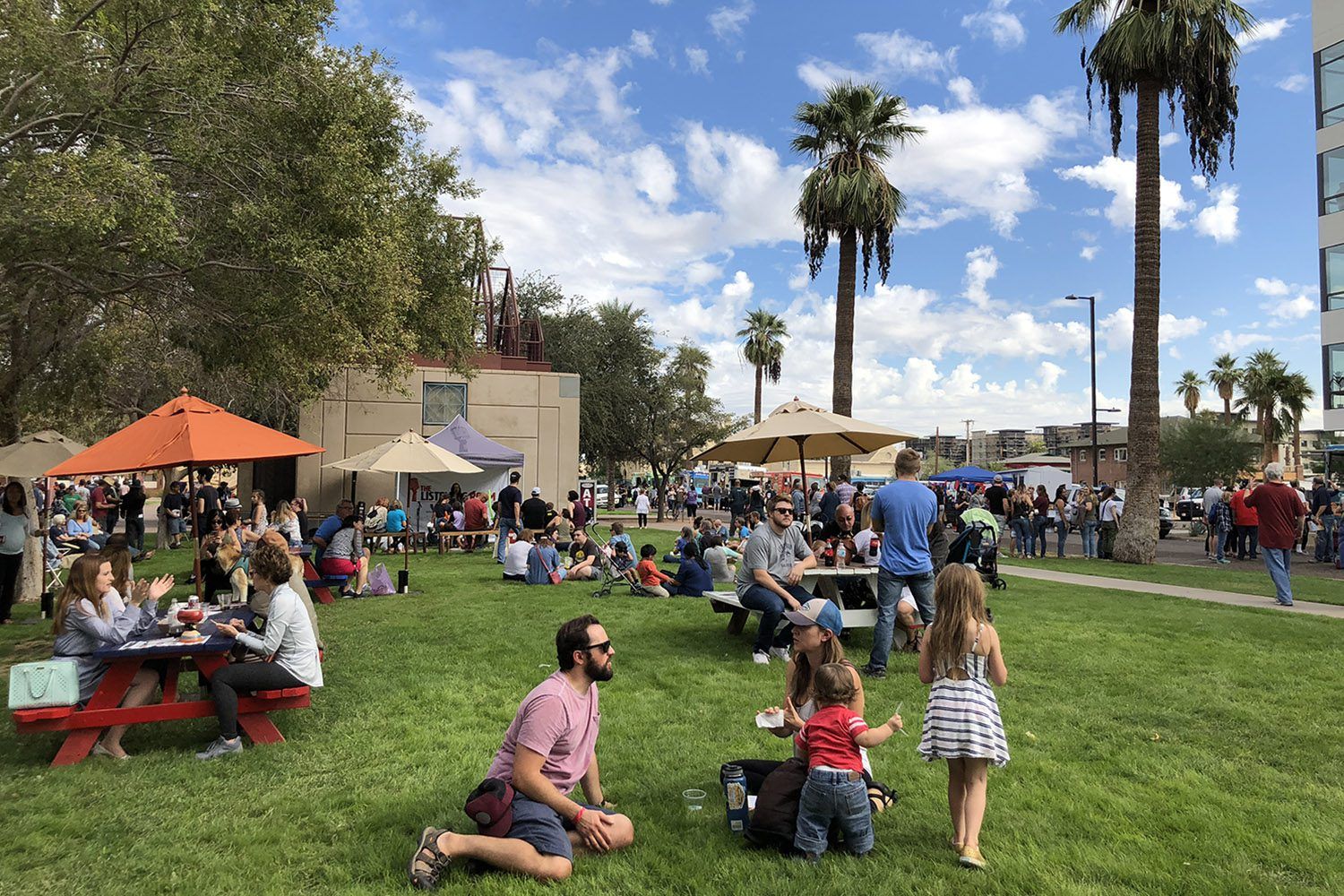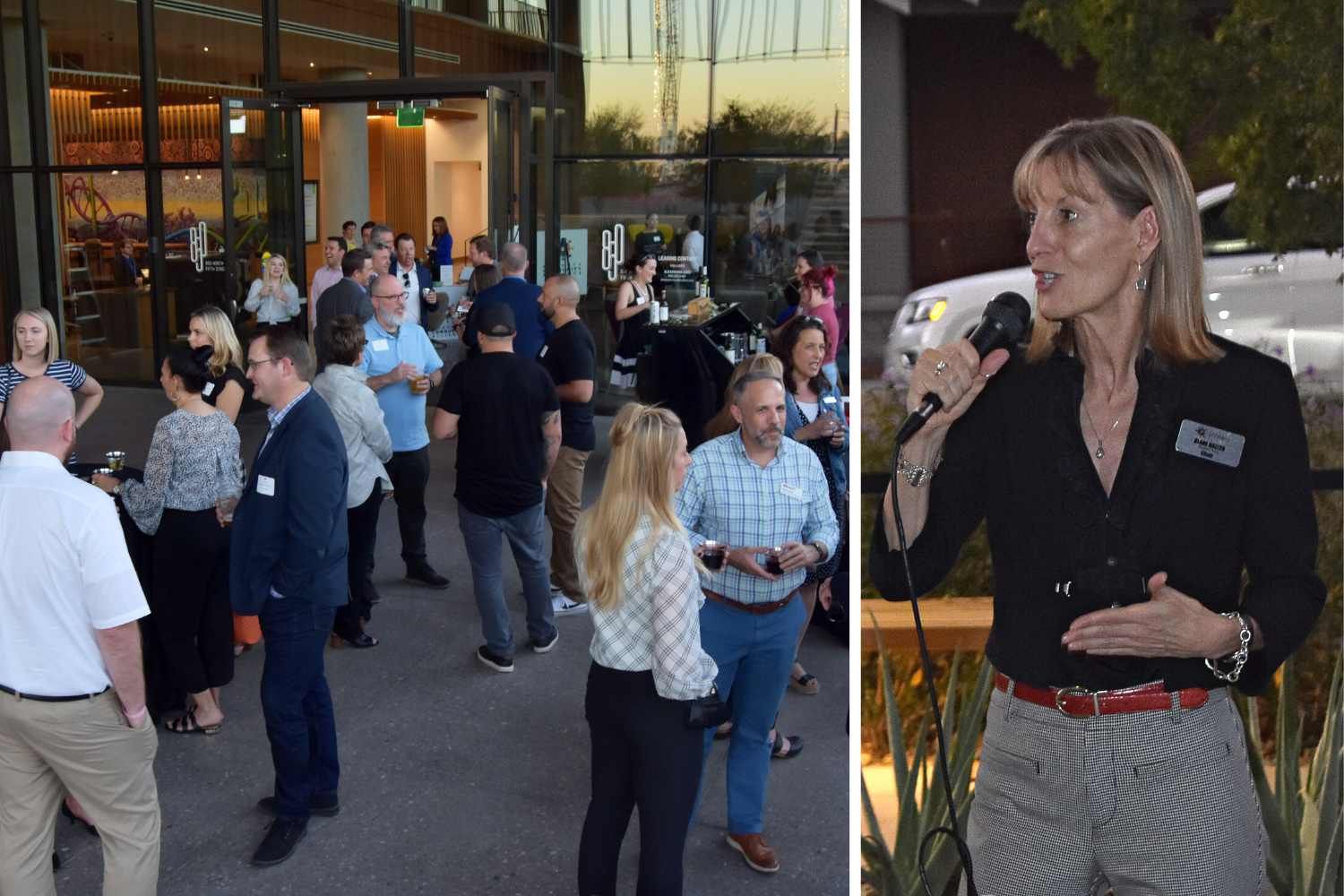Meet Diane Haller: A Phoenix Community Alliance "City-Shaper"
The membership of Phoenix Community Alliance drives the advocacy.
As the longest-standing membership organization in the greater downtown area, the organization built itself from professionals in a diversity of fields using their expertise to affect change, all for the purpose of community building.
The roots of PCA began in 1983, as downtown experienced downturn and decay. Prior to business, cultural and residential developments, the bustle of downtown came to a crawl after sundown, as workers returned to the suburbs. An investment by local business leaders sought to set the area on a different track.
Those who emerged as figures within the organization came from different industries and areas of expertise, but all united behind bringing positive, transformational place-making to enhance downtown’s identity into a self-reliant place with a renewable urban footprint.
To start the “City Shapers” series, we begin by profiling current Board Chair Diane Haller. As Board Chair, Haller built from the groundwork of predecessor Mo Stein to remake PCA into a more democratic organization, brought through the creation of a Public Affairs Committee. For the first time, PCA had a mechanism through which public positions materialized with one centralized voice.
As a result, membership growth steadily climbed. Currently, as of November 2022, PCA boasts 298 Members, seeking to influence public policy and affect sustainable growth and community development downtown.
If you’re interested in joining as a Member, contact staff through the PCA website.
Q: Where did you come from? Are you a local?
Haller: I grew up in the Midwest, and I was done with it. I had been living in Utah before I went to Notre Dame. The campus is beautiful, but the weather is terrible and you’re not there in the summer which is the best weather season.
I had family out here and I loved the desert. So, it was an easy move. Once you cross the Mississippi, there’s no going back.
I was interviewed on campus by a long-time Phoenix firm called Streich-Lang that merged eventually with Quarles & Brady.
Q: What was the state of downtown when you moved here from Utah?
Haller: I first interviewed here in ’84 and they hadn’t even put a shovel in the ground for the redevelopment that was coming. Downtown was a true desert. There were only a few restaurants. You had Sing High, the Matador, Bickoff’s Deli, and Steve’s Green House Grill. The Jack in the Box [where Phoenix City Hall now stands] was, I think, the only fast food in downtown.

Q: PCA has been around for almost four decades. How has the organization changed in the time you’ve participated in its advocacy?
Haller: PCA was run very differently back then. It was development-centric but the number of people that could really get involved to make a difference was a short and not diverse list. I was at the very young end of that demographic.
The opportunity was there to meet people and network, but PCA wasn’t set up for people to participate in advocacy on a broad base. When you think about all of our initiatives now, they just didn’t exist back then.
When you think about the advocacy issue, you must have staff. PCA didn’t have a large staff, it was former PCA President Don Keuth and Vice President Jo Marie MacDonald. And that was it.
And how much of a machine can you really run from an advocacy perspective with two people? You can’t. When you consider our committee meetings and our advocacy efforts , you realize it takes a small village to make advocacy happen.
Every year the PCA tent would get a little bit bigger, but it wasn’t until our staff moved to CityScape and became Downtown Phoenix Inc.’s membership affiliate that we became much more formidable. Our efforts were more visible.
Q: What are some big achievements as board chair?
On Social Housing & Advancement Committee: In terms of legacy initiatives, I highlight three big signature items, SHA [Social Housing & Advancement Committee], the Public Affairs Committee and Hance Park [Fundraising Committee].
In April 2018, we held a board meeting at the Human Services Campus. All of our existing committees, like Arts & Culture and Central City and Central City Planning and Development were raising advocacy issues, and the homelessness concern kept coming up.
In response, I called the board meeting at the Human Services Campus. The Campus staff gave us tours, and most of us, including me, had never been there. If you have never been to the campus, you should go and request a tour. It is a life-changing experience.
At the Board meeting, we had a call to action to our board members, and our board agreed to create an ad hoc committee to focus on homelessness, and identify an advocacy role for PCA. Mo [Stein] and Sheila [Harris] offered to chair it, other board members volunteered to participate on the committee, and the committee just took off, and later became SHA.
On Hance Park Fundraising Committee: When [Former Downtown Phoenix Inc. (DPI) President & CEO] Dave Krietor came on board at DPI, one of the first conversations I had with him was “Dave, what do we do about Hance Park?”
Tim [Sprague, Habitat Metro], Larry [Lazarus & Silvyn, P.C.], Mo [Stein] and I, and others individually were having multiple conversations about Hance Park. That was a true indication of the grassroots effort because it was coming from our leadership. Mo’s office was not far from the park at that time and Tim was developing right on the park. We then formed the Hance Park Fundraising Committee, and the coalition with between PCA, the City of Phoenix and the Hance Park Conservancy.

On Public Affairs Committee: PCA’s Public Affairs Committee consists of other advocacy Committee chairs and downtown business and community thought leaders. It serves as a mechanism for vetting and refining PCA’s public advocacy as they relate to the overall mission and advocacy Committee work plans. Because of this infrastructure, letters of support or opposition prove to be highly influential.
Forming the Public Affairs Committee was a natural part of PCA’s evolution as an organization. We are fortunate to have Ruben [Alvarez] and his firm [Molera Alvarez] as Members, they are extraordinarily high profile in their space, and are difference-makers. That was such a big win for us when Ruben agreed to chair this Committee.
Since its inception in 2017, the Committee weighed in on issues affecting the sustainable growth of greater downtown and beyond. Such positions to emerge from the Committee include, but are not limited to, opposition of Props 105 and 106, which were propositions that would have stymied and outright scraped light rail expansion; supporting then-Talking Stick Arena’s renovation, an anchor tenant in downtown and a consistent economic driver for the local economy; and the launch of the downtown’s pilot e-scooter program.
Additionally, the social and housing advocacy positions that have since emerged from the Public Affairs Committee reflect the urgency to advocate for resources and shelter for vulnerable populations and individuals experiencing homelessness, using local partners to make solutions possible.
Q: What is something the average person might not know about PCA?
Haller: PCA is an incubator. PCA was an incubator of sorts with respect to the Human Services Campus, the Biomedical Campus [now Phoenix Bioscience Core], Steele Indian School Park, McDowell Road [Revitalization], Hance Park, Arizona Housing Fund, thanks to Howard Epstein, our long time treasurer and board member, who was instrumental in its creation, and the Warehouse District.
These are things that got incubated with PCA, and while PCA stays involved at different levels, each of these has its own life.
As Board Chair, Haller brought the organizing core advocacy of PCA to the forefront, increasing equity as an organization around the formation of the Public Affairs and the Social, Housing & Advancement Committees that emphasized the power of collective entities acting as one voice.
In the form of a public letter, the potency of a public position arriving at an elected official’s doorstep increased its strength as an organization.
Continuing off the work of former Chair Mo Stein, who identified Hance Park as a signature project, the gradual revitalization of the park, taking shape under the Hance Park Fundraising Committee, appears as the next big investment of PCA’s activation of its community.
